Mid-Summer Rose Questions
Mid-Summer Rose Questions
“My shrub roses have stopped flowering…how do I get them to bloom again?”
Shrub roses often put out a burst of flowers in mid-to-late June, but after that take a short break. If you do nothing, most of these will start to produce new growth again soon, but you can hasten the process in a few ways. First, you can remove the old flower heads. This is called deadheading, and you just clip off the stem below those old flowers. You do not have to “make the cut above a set of five leaves” as the old school advice says. Just cut them off, and this stimulates new growth.
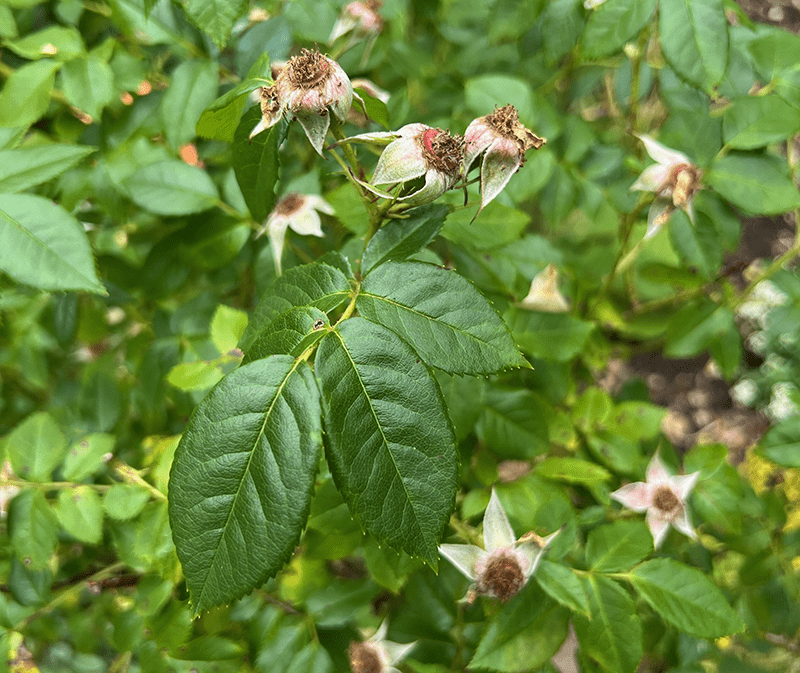
Rose flowers are formed at the ends of new growth, so be sure you are supporting that development of new shoots by fertilizing and watering deeply once every five to seven days. Rose-tone fertilizer can be reapplied now, in July, and if you haven’t mulched around your plants, you can apply an inch of compost or manure over the soil to just beyond the drip line, and then an inch of mulch on top of that. This will not only keep moisture around the roots and keep weeds away, but will also amend the soil from the top down.
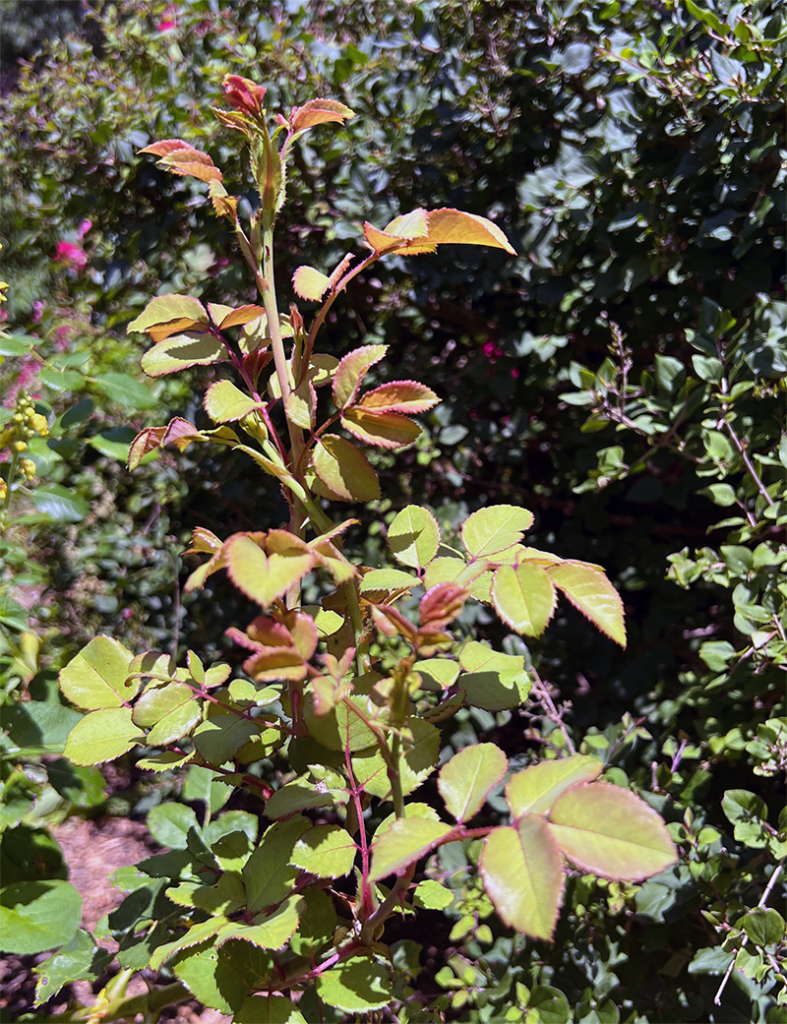
“My roses have yellow leaves with black spots!”
This is called black spot, and it’s a fungal disease. Black spot is encouraged by cool, damp weather, which is pretty much what we have on Cape Cod most springs. In 2022, that cool, damp weather extended into much of June, so most roses show signs of blackspot now. Some roses are especially prone to this fungus, and will drop all their leaves in response. Others (including most landscape or shrub roses) tolerate blackspot and don’t become defoliated. Once a plant has blackspot there is no undoing it, but you can protect the new growth that you’ll stimulate by pruning and feeding your plants. Spray your roses with an organic fungicide every week or two through the rest of the summer. We have many available, including Bio-Remedy, Revitalize, NeemMax, and copper-based products.
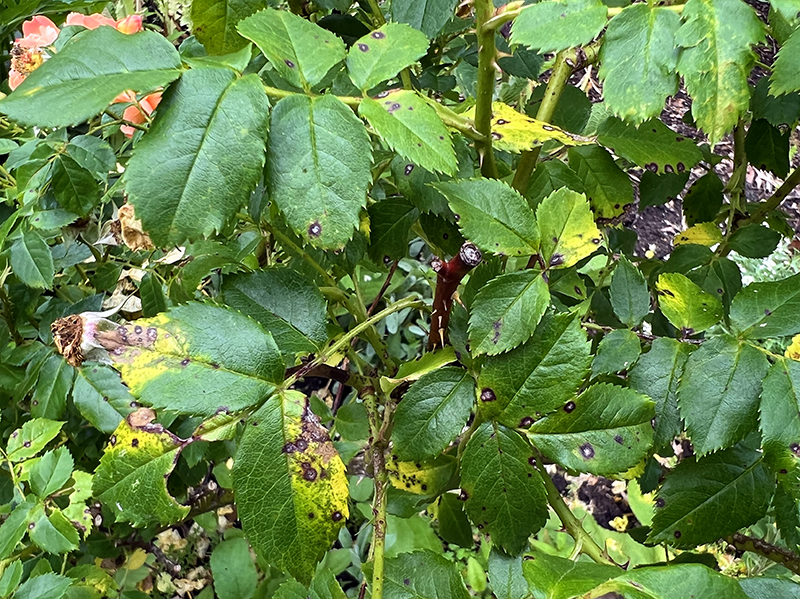
“My roses have become thin and weak, without many flowers. Can they be saved?”
Roses want nutrient-rich soil, a pH around 6.5, and regular deep soakings. If your plants have been in the same place for awhile, it’s likely that your soil needs to be improved. Have a pH test done to see if you need to lime, since soils on the Cape are naturally acidic. Scatter some Rose-tone around the area, well beyond the edges of the plants, and top that with a good inch of compost or composted manure. Then top with mulch. If you’ve already mulched, it would be good to rake that aside for the fertilizer and compost (plus lime if needed) and then reapply the mulch. Water roses deeply every five to seven days – if you have automatic irrigation, make sure it’s not only on for fifteen or twenty minutes every couple of days – shallow watering leads to plants with shallow root systems. Better to water longer less often.
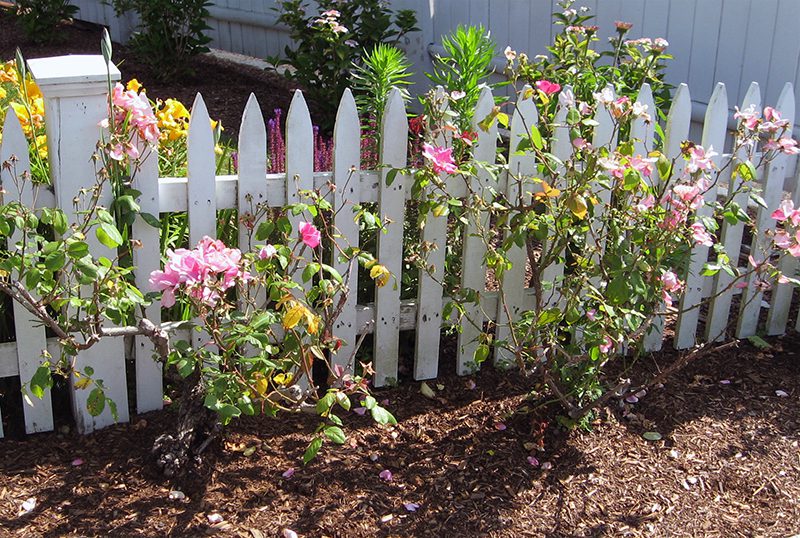
“The sunniest place in my yard is on my patio. Can I grow roses in pots?”
You’re in luck, because roses do very well in containers, but make sure that they have drainage holes and don’t put rocks or other fillers in the bottom. Transplant the roses you buy into a pot that’s about two times larger, and use an organically rich potting mix such as the one by Coast of Maine. Mix some Rose-tone fertilizer into the soil before placing the rose in the new pot. You can either over-winter these plants in an unheated garage, or give them to someone else at the end of the season and start with new plants next year.
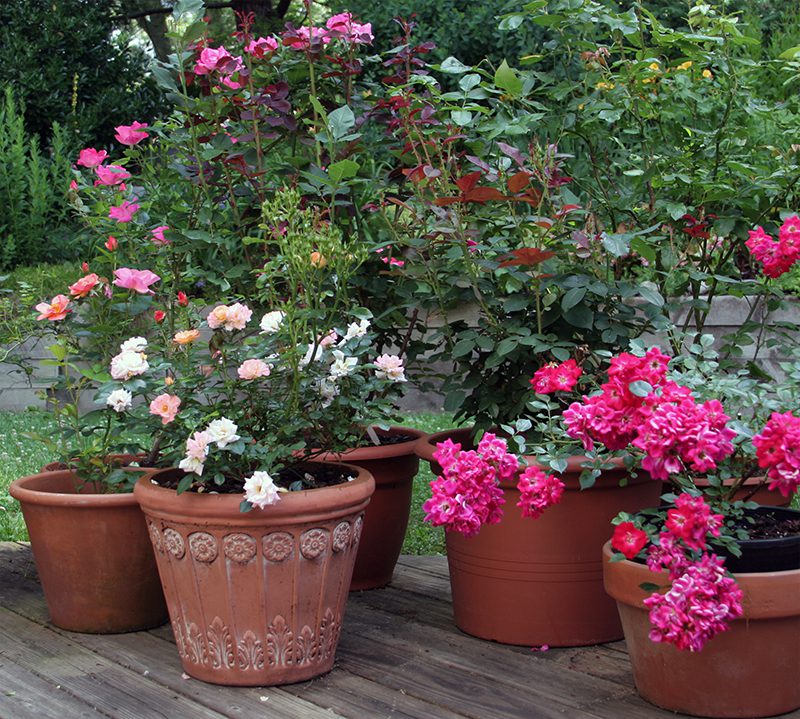
“My roses only bloom at the end of June into early July. How can I get them to flower more?”
Some roses, especially some of the older varieties of climbing and rambling roses, only produce flowers in the early summer. This is a genetic thing, and there’s no way to make those plants rebloom. But you can enjoy them for the three weeks that they are colorful, and plant some other, reblooming shrub roses in front of them or in another part of your landscape.
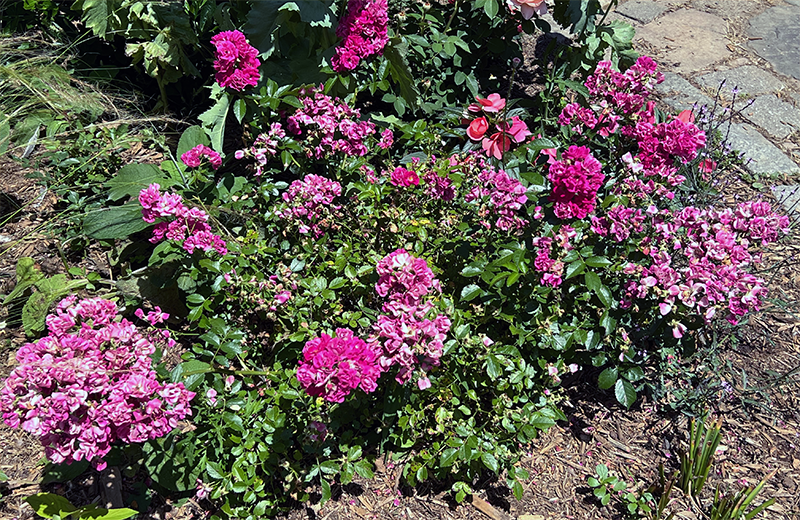
“I have holes in the leaves of my roses. What is making them and what can I do about it?”
First, determine if the damage you see is still going on or if it happened earlier in the season. On Cape Cod, rose leaves are often eaten in May and early June by the larvae of the winter month or rose slug budworm. But people tend to notice the holes or chomped leaves when they deadhead the plants in July. Both the winter moth larvae and rose slug budworm are gone by early July, so no treatment is needed if those were the cause of the damage.
In July, however, the leaf-eating beetles such as the Japanese beetle or Oriental garden beetle appear and they can eat leaves and flower buds. To determine if your leaves were damaged early in the season, or if the beetles are active now, first remove the worst of the foliage. Next, mark a couple places where the leaves have not been damaged, and monitor this over the next week. Finally, go out in the evening and look for the beetles, since they often camp out on rose foliage or flowers for the night. If you see the beetles, come into the store to discuss options with our staff.
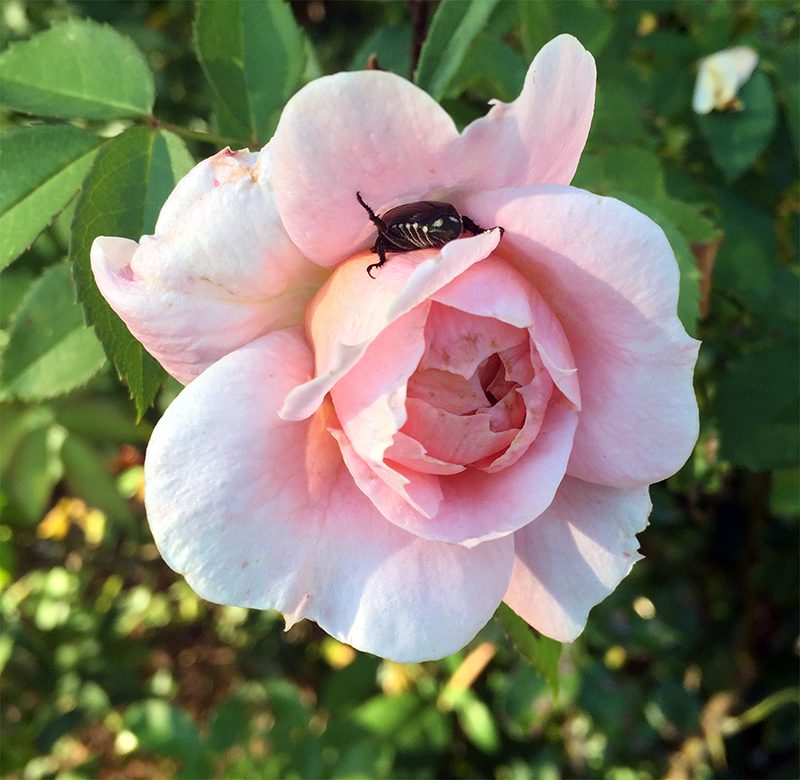
Read more about garden beetles on this fact sheet from the University of Massachusetts.
1 Comment
Leave a Comment
Subscribe To Our Newsletter
Sign up for our weekly email about sales and events.

This was extremely helpful. My roses snd I thank you.